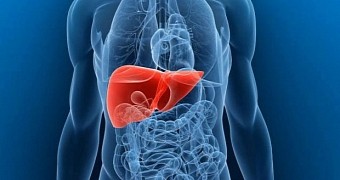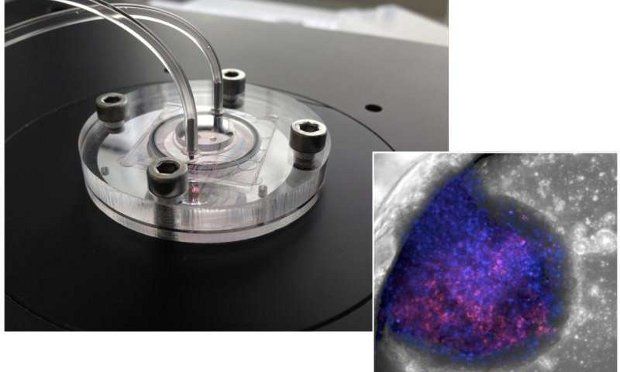In a recent report in the medical journal Archives of Toxicology, researchers at the Hebrew University of Jerusalem in Israel and their colleagues at the Fraunhofer Institute for Cell Therapy and Immunology in Germany describe their work designing and engineering what they call bionic livers.
The science-made organs, measuring no more than 1 millimeter (approximately 0.04 inches) across and grown on chips, were developed as a model to predict drug toxicity. More precisely, the scientists created them to serve as a substitute for laboratory animals.
“Safety evaluation is a critical part of drug and cosmetic development. In recent years there is a growing understanding that animal experiments fail to predict the human response, necessitating the development of alternative models to predict drug toxicity,” the researchers explain.
Why are they calling them bionic livers?
Growing organs in laboratory conditions is not exactly state-of-the-art science. Not anymore, at least. Quite the contrary, it's been done by many and so no longer qualifies as a breakthrough.
Be that as it may, the thing is the miniature livers engineered by this team of researchers comprised more than just cells. The scientists also fitted them with nanotechnology-based electronic and optical sensors, which is precisely why the Archives of Toxicology report on this investigation describes them as bionic organs.
The scientists say the teeny tiny bionic livers they created survived for well over a month. What's more, the team claim the electronic and optical sensors embedded in them made it possible to closely monitor cell activity and better describe how acetaminophen, a pain reliever and fever reducer, affects tissues.
“Because we placed sensors inside the tissue, we could detect small and fast changes in cellular respiration that nobody else could,” study lead author Yaakov Nahmias explained in an interview.
Animal testing will soon become obsolete
Animal models might give researchers an idea about how human patients might respond to one drug or another, but the fact of the matter is they are not all that reliable. Hence the fact that scientists are now hard at work trying to come up with alternatives to experimenting on rats and the like.
It is estimated that, by 2018, the global market for technologies intended to serve as alternatives to animal testing will be worth around $17 billion (over €15 billion).

 14 DAY TRIAL //
14 DAY TRIAL // 

